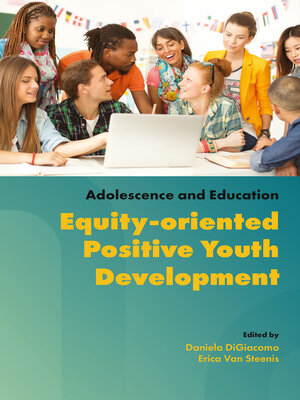
Sign up to save your library
With an OverDrive account, you can save your favorite libraries for at-a-glance information about availability. Find out more about OverDrive accounts.
Find this title in Libby, the library reading app by OverDrive.



Search for a digital library with this title
Title found at these libraries:
| Library Name | Distance |
|---|---|
| Loading... |
This volume from the Adolescence and Education series explores how we conceptualize and approach equity-oriented positive youth development (PYD) today, both in theory and practice. PYD is a prosocial approach that leverages youth's assets to organize programs, services, and supports to maximize their development. It can occur in afterschool programs, community organizations, families, peer relationships, and school interventions. Recognizing PYD as both an approach and a set of outcomes, this volume systematically examines how youth-serving organizations infuse equity into their design and participation strategies, joining other research that enhances engagement with diverse communities.
Bringing together researchers and practitioners, this book explores contexts where youth have the agency to co-author their life narratives. The chapters illustrate how specific contexts and participation structures can foster youth voice, leadership, and expertise without sacrificing best practices in contemporary PYD scholarship. The six main studies highlight the tenets of high-quality youth programs and offer insights into designing for equity and access in meaningful youth participation. The authors critically examine the spaces and social structures that shape youth engagement, focusing on PYD for LGBTQ+ youth, military-involved youth, and Black youth in predominantly rural contexts.
The latter chapters analyze the essential role of youth workers in development and the importance of youth-adult relationships. This book emphasizes that youth engagement in PYD contexts should not be confined to a single model, offering a comprehensive look at how to support diverse youth populations effectively.







